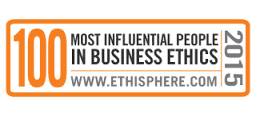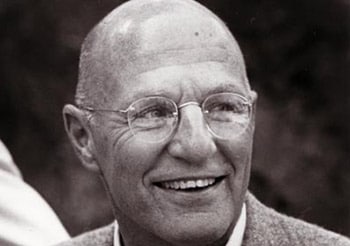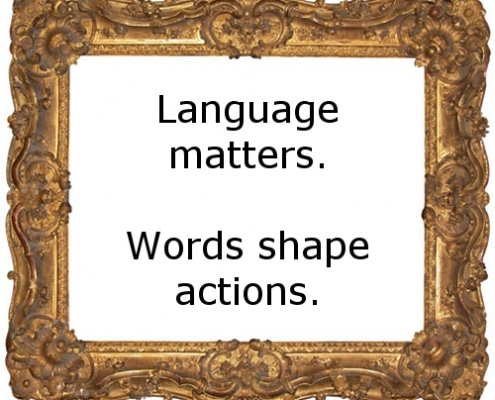Tag Archive for: linda trevino

How to Avoid Becoming the Next Wells Fargo
Blog
Middle Meddling: Management and ethics
Blog Goal setting is often a subject of discussion about behavioral ethics and internal programs. We’ve seen in recent cases such as at Wells Fargo and Volkswagen how cheating and lying become the norm when performance goals are not reasonably achievable. Recent evidence in a paper by Niki den Nieuwenboer, João da Cunha, and ES collaborator Linda Treviño shows the internal dynamics and processes that lead directly to cheating behaviors.
Goal setting is often a subject of discussion about behavioral ethics and internal programs. We’ve seen in recent cases such as at Wells Fargo and Volkswagen how cheating and lying become the norm when performance goals are not reasonably achievable. Recent evidence in a paper by Niki den Nieuwenboer, João da Cunha, and ES collaborator Linda Treviño shows the internal dynamics and processes that lead directly to cheating behaviors.
The researchers, one of which was embedded inside the company, observed managers and sales staff over 15 months at a large (10,000 employees) telecommunications company. The company had established goals for its desk sales teams designed to motivate productivity, including a target for sales as well as sales-related work, such as making cold calls to customers, and gathering information about potential customers, among other planning activities.

Making Business Ethics a Cumulative Science
Blog When businesses and researchers cooperate, collaborate and communicate, everyone wins. A new article in the premiere edition of Nature: Human Behavior by Ethical Systems founder Jonathan Haidt of NYU Stern and collaborator Linda Trevino of the University of Pennsylvania illustrate just how far deeper partnership can take the field of business ethics research and why that will help companies and people to flourish.
When businesses and researchers cooperate, collaborate and communicate, everyone wins. A new article in the premiere edition of Nature: Human Behavior by Ethical Systems founder Jonathan Haidt of NYU Stern and collaborator Linda Trevino of the University of Pennsylvania illustrate just how far deeper partnership can take the field of business ethics research and why that will help companies and people to flourish.
In their piece, entitled “Make Business Ethics a Cumulative Science” Haidt and Trevino outline the various factors that have impeded ties between the business and research communities. Some are due to the misalignment between operational models— academics depend on open access to information towards the goal of building on research and understanding, while businesses need to maintain tight control over information about their inner-workings and ethics— while others are based in the complexity of business ethics as a field.

2016 End of Year Letter from Jonathan Haidt
BlogDear Friends:
 2016 has been a year of extraordinary change. Many of these changes make our mission – to help companies strengthen their ethical cultures using behavioral science research – more vital than ever.
2016 has been a year of extraordinary change. Many of these changes make our mission – to help companies strengthen their ethical cultures using behavioral science research – more vital than ever.
Consider just these three facts:
- Populist movements around the world are usually antagonistic towards large corporations, which they often perceive as engaging in predatory behavior
- The recent U.S. election likely means a new and lighter-touch approach to regulation and compliance, particularly in the financial services industry
- The Brexit vote means that Britain must quickly decide upon its own approach to regulation.
Putting these together: The world is hungry for new ideas on how to improve business ethics in ways that do not rely as heavily as before on detailed rules formulated by legislatures and regulators. There is a desperate need to help businesses become more self-regulating, in ways that will protect multiple stakeholders while increasing the dynamism and profitability of the business.
That is exactly what Ethical Systems is doing and we have made great progress towards our goals this year.

2016 Collaborators in the News: A Year of Many Achievements
Blog 2016 was a year of many achievements for our growing collaborator network. We invite you to browse a highlight list of the research, articles, appearances and talks that helped advance our mission and promote a greater understanding of ethics, decision making, and ethical systems design.
2016 was a year of many achievements for our growing collaborator network. We invite you to browse a highlight list of the research, articles, appearances and talks that helped advance our mission and promote a greater understanding of ethics, decision making, and ethical systems design.
Browse our collaborators and their highlights and achievements from this year >>

Ethical Systems Lands 8 of the Top 100 Most Influential in Business Ethics
Blog Each year, Ethisphere recognizes 100 individuals that have made a material impact in the world of business ethics through their annual 100 Most Influential People in Business Ethics list.
Each year, Ethisphere recognizes 100 individuals that have made a material impact in the world of business ethics through their annual 100 Most Influential People in Business Ethics list.
Ethical Systems collaborators have long been featured on this prestigious list. This year, however, is the first we have had 8 of our distinguished leaders included at one time.
 https://www.ethicalsystems.org/wp-content/uploads/2015/12/Head-shots_MONTAGE.jpeg
1200
739
Jeremy Willinger
https://ethicalsystems.org/wp-content/uploads/2020/04/ES-logo-final-white.gif
Jeremy Willinger2015-12-11 14:48:052020-03-26 16:58:122015 Collaborators in the News: A Year of Many Achievements
https://www.ethicalsystems.org/wp-content/uploads/2015/12/Head-shots_MONTAGE.jpeg
1200
739
Jeremy Willinger
https://ethicalsystems.org/wp-content/uploads/2020/04/ES-logo-final-white.gif
Jeremy Willinger2015-12-11 14:48:052020-03-26 16:58:122015 Collaborators in the News: A Year of Many Achievements
Navigating the Amazon: Workplace Culture and Ethics
Blog While talk in August can normally drift to Labor Day vacation plans and how to brew the perfect pitcher of iced tea, a different sort of discussion began to surface in offices (and backyards) across America: that of workplace culture and the different extremes that workers at Amazon report as the norm.
While talk in August can normally drift to Labor Day vacation plans and how to brew the perfect pitcher of iced tea, a different sort of discussion began to surface in offices (and backyards) across America: that of workplace culture and the different extremes that workers at Amazon report as the norm.
The New York Times article that started it all, "Wrestling Big Ideas in a Grueling Workplace," provided an eye-opening look into the management practices, feedback loops and performance measurement metrics at Amazon, eliciting both accolades and acrimony from current and former employees. After much debate, the dust settled at a realization that the intensity is both a blessing and a curse and tailored for only certain kinds of personalities. An overarching theme was that burnout is common and, to a certain extent, expected.

Jerry Kohlberg: Banking on a Moral Identity
Blog Jerry Kohlberg amassed one of Wall Street’s largest fortunes after co-founding Kohlberg, Kravis and Roberts (KKR) in 1976, but it was his consistent emphasis on ethics as a force for good, along with his warnings of the potential evils outsized wealth can tender, that we will remember most.
Jerry Kohlberg amassed one of Wall Street’s largest fortunes after co-founding Kohlberg, Kravis and Roberts (KKR) in 1976, but it was his consistent emphasis on ethics as a force for good, along with his warnings of the potential evils outsized wealth can tender, that we will remember most.

Framing the Language of Business
Blog Framing is not just how you present a painting. Framing helps to communicate the type of art, it complements subject matter, and it influences how the viewer perceives the image. Framing also matters when it comes to business, and the language we use can deeply affect both the rules we follow and those we are willing to break.
Framing is not just how you present a painting. Framing helps to communicate the type of art, it complements subject matter, and it influences how the viewer perceives the image. Framing also matters when it comes to business, and the language we use can deeply affect both the rules we follow and those we are willing to break.
While business has its own lexicon, a new piece in Ethisphere by Scott Killingsworth, Senior Counsel with Bryan Cave LLP in Atlanta, illustrates that when we couch the business of business in terms of war and gamification, we prime the pump for pernicious results.

